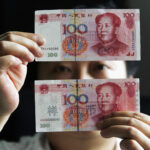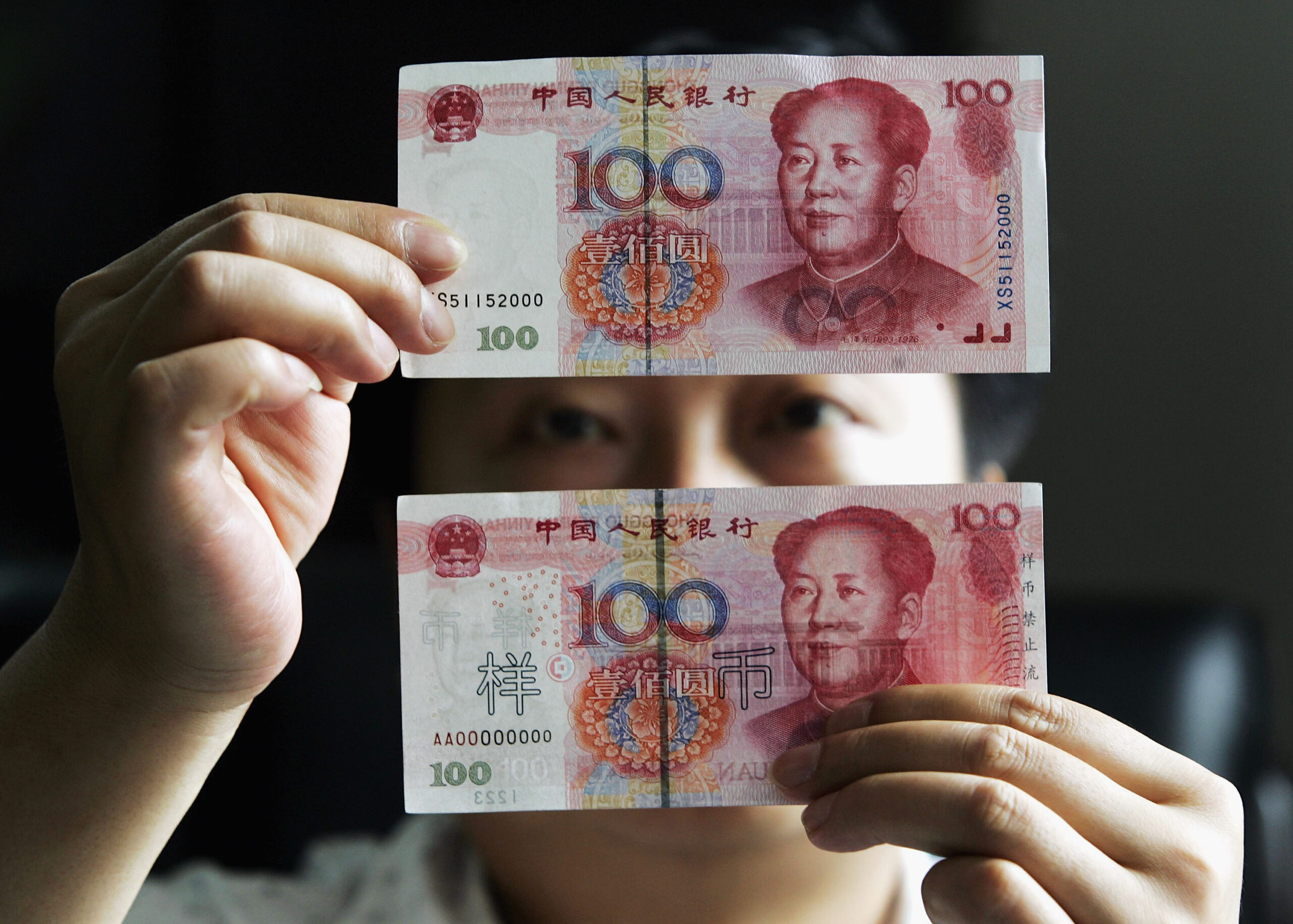China: the real problem is not real estate, but monetary


SHANGHAI, CHINA – AUGUST 31: (CHINA OUT) A Chinese man identifies a new issued 100 yuan note with an old one issued in 1999, at a bank on August 31, 2005 in Shanghai, China. Authorities issued new yuan notes today that largely resemble bills in circulation but with new marks meant to foil currency counterfeiters. New 100, 50, 20, 10 and 5 yuan notes, as well as a 1 jiao coin (10 Chinese cents), were available from the People's Bank of China. The design of the new bills, bearing a portrait of former Chinese leader Mao Zedong, remains the same as the last-issued 1999 series but incorporate new watermarks and other minor changes that will make it harder to duplicate, according to state media. (Photo by China Photos / Getty Images)
China does not have a real estate investment problem, or a simple capital flight: China is faced with the dilemma that any economy faces when managing its monetary policy. An interesting Epoch Times article studies the situation
Sovereign monetary policy faces the unsolvable dilemma of what economists call the "impossible trinity". Countries may have a fixed exchange rate, a free flow of capital, or a sovereign monetary policy, but they only have to choose two of the three . China has tried to manipulate each of these levers and has come out badly, because the laws of economics will not be as rigid as those of physics, but they are not circumventable. . China has implemented a near-fixed exchange rate, which is effectively tied to the US dollar, with tightly controlled capital flows and a semi-sovereign monetary policy. He tried to realize the monetary trinity, but failed.
What hardly anyone noticed in the convoluted creation of China's currency policy that sought to adhere to the "impossible trinity" is that over the past 20 years China has benefited from the synchronization of the business cycle with the United States. Since the yuan was tied directly to the US dollar and the US kept interest rates low, China could keep its interest rates low.
Now that the Federal Reserve (Fed) is raising interest rates, what will be the impact on China?
- First, the days of easy cash flows to China are over. For much of the past 20 years, Chinese interest rates have been 3-5% higher than in the United States. With a fixed or semi-fixed exchange rate, Chinese investors had access to higher yields. With portfolio returns and foreign direct investment based on interest rate differentials between the US and China, this has attracted the capital of investors with fixed or heavily managed exchange rates, creating easy returns. But when US government bonds yield more than Chinese investments, and without risk, then they will never get there;
- Second, this will put enormous upward pressure on Chinese interest rates just as the Chinese economy is faltering. For most of the period since 2000, the Chinese and US economies have been highly correlated. This allowed Chinese interest rates to follow US interest rates and to enjoy an extended period of cheap money. However, now that the Fed is trying to contain inflation and overheating in demand, China is suffering from its weakest economy in possibly post-opening history. So China finds itself connected to the US at the worst moment of its economy, when the cycles are breaking away;
- Third, rising US interest rates will exacerbate capital outflow pressures from China. When Chinese government interest rates were 3-5% higher than in the United States, money flowed to China in search of higher yields. Today, short-term US public debt yields more than China's comparable public debt. Combined with corporate sector weakness and real estate pressures, Chinese investors see plenty of reasons to move their money out of China.
For countries like Japan or the UK, capital outflows mean devaluation. While China has $ 3 trillion in reserves, given the size of its economy and the local financial market, that $ 3 trillion is actually much smaller than it appears when it comes to controlling the foreign exchange market. Therefore, with the flows of investments dried up due to the anti-yield of the dollar, China should follow a devaluation path that it does not want to take.
China tries to square the circle of financial policy by ignoring the realities of economic policy. While Chinese regulators acknowledge that the PBOC's daily set price of the yuan has deviated significantly from the weighted formula based on the price of the US dollar, they cannot do much to force banks to comply with this artificial exchange rate. If US interest rates remain above China's for an extended period, this will force Beijing to change its policy in the face of a set of circumstances never seen in modern history. Beijing is currently telling the markets how to behave and how to price assets. This can only happen before markets find ways to move money or black markets that pay better prices.
Given the expected multi-year interest rate cycle and the likely subsequent strength of the US dollar, Beijing faces some tough decisions. Raise interest rates to stem the fall of the yuan in the face of a faltering economy? Does it defend the yuan and tighten international financial flows even more?
Realistically, we should expect Beijing to delay any kind of real decision as much as possible, given the very negative trade-offs it faces. Further tightening of capital flows will only drive international investment away.

Thanks to our Telegram channel you can stay updated on the publication of new articles of Economic Scenarios.
The article China: the real problem is not real estate, but monetary comes from ScenariEconomici.it .
This is a machine translation of a post published on Scenari Economici at the URL https://scenarieconomici.it/cina-il-vero-problema-non-e-immobiliare-ma-monetario/ on Tue, 04 Oct 2022 07:30:53 +0000.
